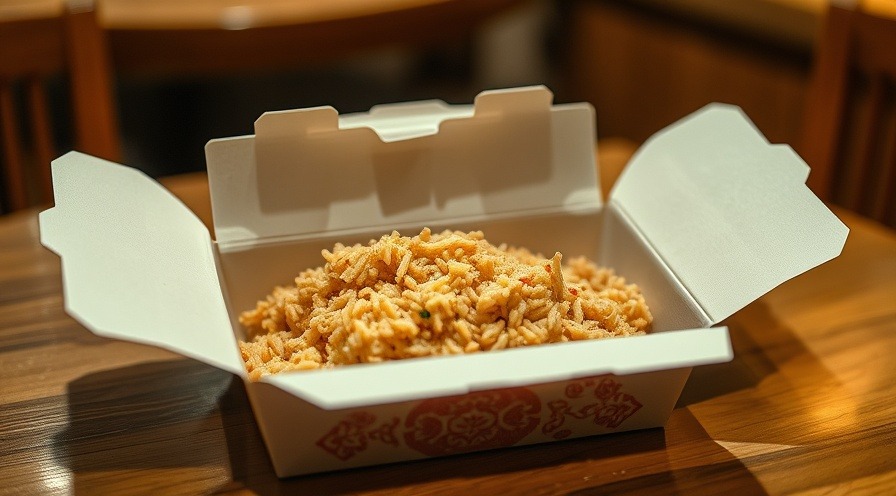
Understanding the Risks of Room Temperature Food
The recent discussion surrounding food safety has highlighted alarming risks associated with eating food that's been left out at room temperature for too long. Particularly, Bacillus cereus, a type of bacteria, poses a significant health threat when it multiplies on unrefrigerated items. Even if you reheat this food, the bacteria can remain, leading to a dangerous condition known as fried rice syndrome.
In 'Eating food left out at room temperature for too long can be risky, even if reheated,' the discussion dives into the critical risks associated with improperly stored food, which has prompted a closer look at effective food safety practices.
What is Fried Rice Syndrome?
This syndrome results from consuming food that has been inadequately stored, particularly rice, pasta, meats, and vegetables. Symptoms include vomiting and diarrhea, and in severe cases, it can be life-threatening. Understanding that the bacteria can withstand reheating makes it imperative to handle food with care.
Safe Food Practices: Timing is Key
According to experts, food left out at room temperature shouldn't exceed certain time limits. Food left out for less than two hours is generally safe to consume or refrigerate for later use. However, between two and four hours, caution is advised; while it can still be edible, it's best to minimize consumption or risk. If food has sat out for over four hours, the safest choice is clear: do not eat it or even attempt to save it for future meals.
Strategies to Ensure Food Safety
Reinforcing safe food practices is essential for health-conscious adults. Here are some practical tips to avoid foodborne illness:
Keep It Cool: Refrigerate perishable items promptly, especially after gatherings or meal preparations.
Stay Informed: Familiarize yourself with safe temperature ranges for food storage—aim to keep food out of the 40 to 140 °F danger zone.
Plan Your Meals: Prepare smaller portions to limit the need for food left at room temperature.
Why This Matters: Implications for Health and Wellness
The connection between food safety and health is not just about avoiding illness; it extends to overall wellness. Consuming safe food is crucial for maintaining proper nutrition and promoting a healthy lifestyle. As health-conscious individuals, understanding these risks not only protects our health but empowers us to make informed decisions when it comes to food preparation and storage.
For anyone committed to wellness, practicing proper food safety is non-negotiable. Following the simple guidelines outlined can help prevent unpleasant outcomes and promote a healthier lifestyle.
 Add Row
Add Row  Add
Add 




 Add Row
Add Row  Add
Add 

Write A Comment